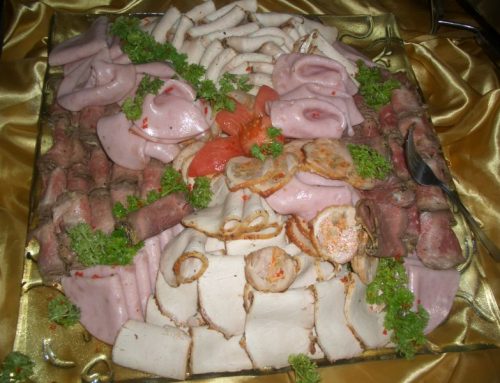In the realm of gastronomic diversity, the culinary use of guinea pigs, particularly in Andean cultures, stands as a poignant example of how food practices are enmeshed in the tapestry of cultural identity and tradition. As a culinary delicacy, the guinea pig—or ‘cuy’ as it is known in Spanish—has been consumed for centuries in countries such as Peru, Ecuador, and Bolivia. This raises an array of ethical discussions concerning the consumption of non-traditional animals, cultural relativism, and the shifting paradigms within global perspectives on food ethics.
The cultural significance of guinea pig consumption cannot be overstated. For many Andean communities, cuy is not merely a source of nourishment; it symbolizes prosperity, tradition, and familial bonds. Festive occasions often feature this dish, wherein it is roasted and served whole, demonstrating a communal way of sharing food. These cultural ties underscore the importance of understanding culinary practices through an anthropological lens, which often demands that one suspend judgment and adopt a culturally relativistic viewpoint.
This perspective becomes particularly salient when considering Western attitudes towards food consumption. In the West, the notion of eating pets, particularly animals like guinea pigs, elicits strong emotional reactions. The juxtaposition between cultural customs can breed misunderstanding, often resulting in ethnocentric interpretations that view such practices through a moralistic lens. However, it is imperative to consider that culinary norms are deeply rooted in local histories, environmental adaptations, and socio-economic factors.
The ethical debates surrounding guinea pig consumption extend into broader discourses about animal rights and welfare. Advocates against the consumption of guinea pigs often cite concerns regarding sentience and the conditions under which these animals are raised and slaughtered. In contrast, proponents argue that guinea pigs, when raised in traditional agricultural systems, enjoy a quality of life that is often superior to that of intensively farmed livestock. Hence, the ethical considerations become intertwined with the cultural significations that accompany the practice.
A critical examination reveals that debates over food consumption transcend individual choices and reflect larger societal values. Consumption practices can be viewed as an articulation of identity, with guinea pig dishes embodying a connection to land, tradition, and community. Meanwhile, criticisms from outside cultures can serve to marginalize the very communities that maintain these traditional practices. Such scenarios promote a discourse on cultural imperialism, wherein dominant cultures impose their food ethics upon others.
Within the larger discussion of cultural relativism, one must grapple with the notion of moral universality versus the particularities of cultural practices. For instance, many Western food practices—such as the consumption of beef, chicken, or seafood—are deemed acceptable despite the ethical implications associated with these animals. When juxtaposed against the consumption of guinea pigs, it raises critical questions about why certain animals are prioritized or vilified based on arbitrary cultural standards.
Cultural relativism urges individuals to engage with diverse culinary practices without preconceived judgments. Such an approach fosters dialogues about not just food ethics, but also about the socio-economic realities that these practices represent. In the context of Andean culture, consuming guinea pigs can be seen as a sustainable practice, where raised animal populations are often integrated into local agricultural systems, thus contributing positively to food security.
Moreover, the shift in perspectives around food consumption also connects with global movements towards ethical eating. As awareness around the environmental impacts of various farming practices increases, traditional methods, such as those involving the raising of guinea pigs, are often viewed as more sustainable alternatives. This argument invites a broader discourse on the intersection of culture, environment, and ethical eating, suggesting that perhaps embracing a wider array of acceptable food sources could be beneficial in mitigating some of the adverse impacts associated with modern agriculture.
In contemporary conversation about harnessing the potential of diverse protein sources, the culinary use of guinea pigs merits thoughtful inquiry. By examining how cultural practices function within the parameters of security, thriving ecosystems, and community sustainability, one can appreciate the role of cuy in promoting both economic resilience and cultural continuity. Such discoveries reveal not just a unique culinary tradition, but also suggest a possible paradigm shift in our approach to global food systems.
In conclusion, the cultural dishes associated with guinea pig consumption catalyze not only a reconsideration of what constitutes acceptable culinary practices but also provoke critical dialogues concerning ethics, sustainability, and cultural integrity. By suspending judgment and embracing a culturally relativistic perspective, individuals may gain a profound understanding of how food serves as both sustenance and a vessel for cultural expression. The debates surrounding guinea pig consumption thus illuminate broader societal values, challenging us to reconsider our gastronomic principles and the cultural meaning imbued within every meal. Ultimately, the intersection of culinary traditions and ethical discourse invites curiosity and reflection, paving the way for a more inclusive understanding of food in our global society.
